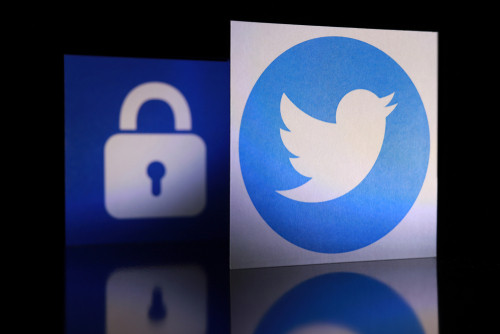Popular Reads
Top Results
Can't find what you're looking for?
View all search resultsPopular Reads
Top Results
Can't find what you're looking for?
View all search resultsMinistry denies 'iron fist' measures to block social media amid jobs law protests
A ministry official has denied suggestions that it had blocked social media platforms amid the continuing protests against the Job Creation Law, saying that doing so required following strict procedure and could not be done on the government's whim.
Change text size
Gift Premium Articles
to Anyone
T
he government has denied restricting access to social media platforms amid the flood of protests against the controversial Job Creation Law, arguing that such a measure could not be carried out suddenly without any supporting evidence.
The government must have a legal justification for imposing restrictions on social media platforms, said informatics applications director general Samuel Abrijani Pangerapan of the Communications and Informatics Ministry.
“If we [do] something, like asking for [social media content] to be taken down, we must provide evidence first. The government cannot ask for restrictions just like that, there are steps to [follow],” Samuel said at a discussion on Monday as quoted by kompas.com.
“Especially since we live in the democratic era, it is impossible for the government to rule with an iron fist,” he added.
Samuel said that the ministry must abide by the standard operating procedure (SOP) to block social media content and accounts, which included providing strong evidence that the content contained fake news and could potentially incite public unrest. Proof must also be provided that the relevant platform refused to take down the offending content.
“So we cannot impose restrictions without a clear reason,” he underlined.
The public has taken to social media to express their ire and criticize the government and the House of Representatives following the passage of the contentious job creation omnibus bill on Oct. 5. Some users have claimed that posts criticizing the law and the government had been taken down and their accounts suspended.
Emergency restrictions were first imposed on social media platforms in the country by former communications minister Rudiantara during the post-election riots in May 2019. The measure was again imposed in August 2019 during the antiracism protests and social unrest in Papua.
On June X, however, the Jakarta State Administrative Court ruled that it was unlawful for the government to restrict internet access in Papua and West Papua in response to the heightened security tensions in the two provinces.
The judicial panel found that the government had violated the 1959 State Emergency Law in imposing the internet blackout, as it had failed to prove to the court that the country was in a state of emergency that would justify imposing the measure. The court also ruled that any policy that restricted the people’s right to information must follow the law, and must not be left to the government’s discretion.
Samuel said that the ministry planned to issue a new ministerial regulation on social media restrictions, which would stipulate administrative sanctions for platforms that failed to take down hoaxes that caused public unrest. (nal)










